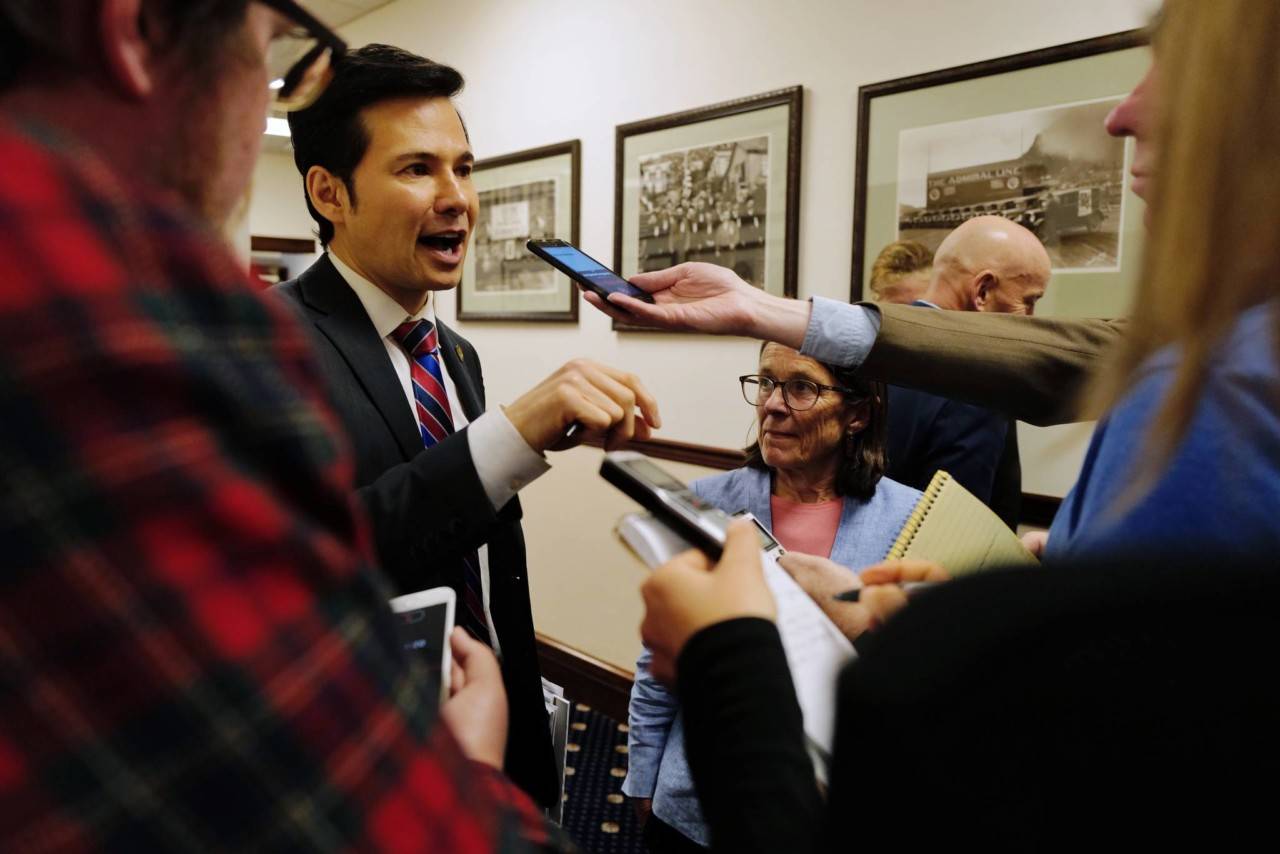The House of Representatives is working to move a number of bills through the Legislature in an effort to pass a capital budget and bring a close to the ongoing special session.
The are currently three bills working their way toward the governor’s desk which, if all of them are passed, will provide significant funding to many government programs, provide funds for federal matching dollars and allocate a Permanent Fund Dividend of $1,600.
House Bill 2001, designates funds for the state’s operating budget. This is the bill that reverses many, but not all, of Gov. Mike Dunleavy’s line-item vetoes from the state budget.
On Wednesday on the floor of the House, Rep. Neal Foster, D-Nome, said that HB 2001 reversed about 75 percent of the the governor’s vetoes, and “represents a great compromise on the part of the Legislature.”
In that same session the House voted to remove language allocating a Permanent Fund Dividend from HB 2001, in an attempt Foster said, “to bifurcate” the issues of the PFD and the state budget. In that same session the House voted for another amendment, introduced by Rep. Louise Stutes, R-Kodiak, that would add $5 million dollars to the Alaska Marine Highway System.
Rep. David Eastman, R-Wasilla, introduced a bill to add $3,000 PFD language to the bill, but that amendment failed.
Dunleavy and several members of the House minority caucus have made a $3,000 PFD a top priority.
In the past members of the minority caucus have voted against funding bills because they did not allocate what they say is a legally mandated $3,000 for the dividend.
House Bill 2002, allocates money for the capital budget, and effectively reverses “the sweep,” the accounting law which empties many state savings accounts tied to various programs at the end of each fiscal year.
These funds are normally restored almost immediately but this year the Legislature failed to obtain the vote necessary to reverse the action. Furthermore, the Dunleavy administration this year added a number of accounts to the list of sweepable funds which were not previously included.
Among these were the accounts funding the Alaska Performance Scholarship fund, which provides money for Alaskans to attend university in the state, and the Power Cost Equalization fund, which subsidizes power costs for people in rural areas.
House Bill 2003, is the result of the removal of PFD language from HB 2001. The House Finance Committee held an early morning meeting Thursday to discuss the amount that would be allocated for this year’s dividend.
There are conflicting statutes on the books about how much should be allocated for the PFD. On the one hand, there is a 1982 law that designates $3,000 for the yearly payment. This is the law cited by the Dunleavy administration and some members of the legislature as the only valid law and the rule which must be followed.
However, other members of the legislature, including House Finance Co-Chair Jennifer Johnston, R-Anchorage, says that PFD is to be allocated as a percent of market value of the Permanent Fund.
House Finance voted down an proposed amendment from Rep. Cathy Tilton, R-Wasilla, to raise the PFD amount to $3,000 using funds from the earnings reserve account.
Later Thursday morning, on the floor of the House, Eastman attempted to enter an amendment into HB 2003 that would raise the amount of the PFD, but that was also voted down.
At about 1 p.m. Thursday afternoon, a press release from the House Majority said that the House will vote Monday, July 29, to rescind the vote on Senate Bill 2002 that occurred Monday July 22, when the House failed by one vote to pass the bill.
After the failed Monday vote, Speaker of the House Bryce Edgmon, I-Dillingham, put out a press release saying the house would vote to rescind and would get the crucial thirtieth vote either from absent members, or from members who previously voted against SB 2002.
If the House does vote to rescind the previous vote, it will give the legislature its final opportunity to pass a capital budget.
“Now is the time to act and prove that Alaska is truly open for business,” Edgmon said in a press release. “This capital budget provides our private sector the resources needed to build our state, gives an incentive to keep our most qualified students from pursuing opportunities outside, and equalizes power costs so individuals and small businesses can survive whether they operate in large urban centers or rural communities.”
If the House is able to get to 30 votes, that would give the Legislature enough votes to withstand the governor’s veto, assuming the all members vote the same way in the override.
The House is scheduled to meet at 10 a.m. Friday, July 26 to discuss HB 2003, the payment of the PFD.
• Contact reporter Peter Segall at 523-2228 or psegall@juneauempire.com.

